There is certainly evidence
that saturated fat and calorie excess adds to the risk of developing cancer
increase risks of side effects during therapy, reduce the cure rate and increase
the risks of fatal diseases other than cancer
The evidence A large analysis of
USA health professionals who had a
high energy and fat intake subsequently were associated with an increased
risk of advanced prostate cancer especially for cases with a young age at
diagnosis or had a positive family history of cancer. At a recent
conference in the National Institute of Health, a Cambridge University
scientist, presented data to show that women who eat more than 90g of
fat a day had twice the risk of developing breast cancer than those eating 40g
per day. Overweight women also had an increased risk of breast cancer
irrespective of their daily saturated fat intake.
After cancer has developed,
the NSABP and other studies have demonstrated a strong
association between obesity (adiposity, BMI>30kg/m2) and
outcome after treatment for bowel, breast and prostate cancer, with the
improvement in survival being a result of both decreased cancer and non-cancer
related deaths such as heart attacks and strokes.
Other
evidence for the risks of fats comes from studies using statins, which are now
commonly used across the world to reduce blood fat levels by chemically reducing
fat absorption from the gut. Five randomised trials have demonstrated fewer
colon, breast, and melanoma in long term users of statins compared to controls.
The data for prostate cancer however, is non conclusive as two large clinical
cohort studies did not demonstrated a reduce risk with statin intake. A further
cohort study of 16,976 subjects showed a 63% reduction of prostate cancer
although this did not stand up to robust statistically analysis. Furthermore, it
is also still not completely clear that statins may have a direct anti cancer
affect independent of their ability to reduce blood fat levels.
The
underlying mechanisms of why high fat intake and obesity affects the risk of cancer include:-
Oestrogen levels. Adiposity influences the
production of and availability of the body’s sex hormones including oestrogen,
androgens and progesterone. In post menopausal women oestrogen is made in the
peripheral body fat whilst in pre-menopausal women it is produced primarily in
the ovary. This may explain a higher risk of breast and endometrial cancer for
overweight post menopausal women but not pre-menopausal women. Fortunately,
oestrogen levels have been shown to reduce following weight reduction
programmes.
Insulin and Insulin-like growth factor receptor (IGF-1).
The increased risks of cancer or its rate of progression is not just hormone
related. We know this because overweight women have a worse prognosis after
cancer whether their cancers where sensitive to oestrogen (ER+ve) or not
(ER-ve). One mechanism for a non hormone related increased risk of cancer
progression is via IGF-1 which is higher in overweight people. Higher levels
have also been associated with breast, ovary and prostate cancer. This protein,
also higher in sedentary individuals, has been shown to promote cancer cell
division (encourage proliferation), inhibit apoptosis (cells don’t die when they
should) and encourage them to spread.
Leptin. This is a multifunctional
neuro-endocrine hormone generated primarily from fat cells. There is a direct
correlation with the amount of body fat levels and circulating blood levels of
leptin. There is also a correlation between leptin and serum insulin, IGF-1 and
progesterone levels. Leptin has been shown in several laboratory experiments to
promote proliferation, reduce apoptosis and reduce the stickiness of cancer
cells encouraging them to spread and metastasise. Higher leptin levels are
associated with higher expression of Cycloxidase 2 which also, as described
below, encourages cancers to grow faster and spread.
Progesterone. Another important hormone which
would affect women is progesterone. Compared to women with ‘normal’ weight
pre-menopausal obese women in particular have reduced serum progesterone. There
is a significant body of evidence that progesterone plays a protective role in
cancer progression particularly ovary. Progesterone increases in pregnancy which
also adds some protection against breast and ovarian cancer. In post menopausal
women who are not overweight (BMI < 35kg/m2) the evidence is less
clear. The risk of breast cancer, in a one large study from Sweden, was higher
in women taking HRT containing progestin than those containing oestrogen alone.
On the other hand, another study of postmenopausal women with breast cancer from
Boston USA, women with higher blood levels of oestrogen and androgens had a
worse prognosis but no such correlation was found with progesterone. It well be
therefore, that the protective affect of progesterone is greater in
pre-menopausal women.
Types of fats
Healthy fats
- Replacing saturated fats with polyunsaturates, and to a lesser extent,
monounsaturates, have been shown to reduce serum blood cholesterol and other
unhealthy fat levels.
Evidence from two large prospective
studies and a smaller case-control study suggests a protective effect of oily
fish intake on cancer incidence and risk of dying from it. A unique nutritional
component of fish is the long-chain marine omega-3 fatty acids. Cancer cells
grown in the laboratory in petri dishes and in mice, as well as small human
studies have suggested that marine omega-3 fatty acids or even more importantly
the ratio of marine omega-3 to omega-6 fatty acid can modulate cancer
progression. The entire reason for this not fully understood but one mechanism
appeared to be via the cyclooxygenase-2 (COX-2) pathway, described below.
Another healthy fat is olive oil which provided it is not
over processed, is predominantly the monounsaturated fatty acid oleic acid
having strong antioxidant properties. Olive oil also exhibits a number of other
advantageous biological functions, including an ability to reduce blood
saturated fat levels. Environmental studies have shown that higher olive oil use
correlates to a lower incidence of atherosclerosis, diabetes, inflammatory and
autoimmune diseases, skin wrinkling and skin aging. For centuries, Greeks and
Egyptians have also used olive oil topically for the treatment of what they
termed “erythema” or redness and wealthy Romans would rub it on their skin
before a steam bath.
The potent antioxidant effect of olive oil has been
confirmed in cancer cells grown in the laboratory. They have demonstrated
reduced DNA damage when exposed to carcinogens in the presence of oleic acid. In
mice, massaging olive oil for 5 minutes every evening after a days exposure to
UV light had a major effect on reducing skin damage and number of skin cancers.
It was then found that the mechanism for this protection lies in the finding
that the formation of 8-hydroxy-deoxyguanosine (8OhdG) in the mice skin was
reduced by the application of olive oil. This is a marker of DNA damage so
clearly the olive oil is protecting the DNA from the effect of the UV light.
More recently, oleic acid, in laboratory experiments, has
been shown to suppress a protein on breast cancer cells called Her-2. Over
expression of this protein is present in 25% of patients with breast cancer and
is the main target for the biological agent herceptin. In general the higher the
concentration (over expression) of the HER-2 protein the more aggressive the
cancer. Olive oil can enhance the effects of herceptin by promoting apoptosis,
reducing proliferation etc. It may have an affect on its own even without
herceptin. This natural herceptin is being investigated in further
clinical studies.
Harmful fats The saturated
fats found in meat the harmful in excess last chapter explained why we should be
aiming to cut down on fat, and particularly trying to replace. A particularly
harmful group of fats are the trans-fats or hydrogenated fats.
Hydrogenation is one of the processes that can be used to
turn liquid oil into solid fat. The final product of this process is called
hydrogenated vegetable oil. It's used in some biscuits, cakes, pastry,
margarine, processed foods and particularly the fast food industry. The trans
fats found in food have no known nutritional benefits and emerging evidence
suggests that their may be worse than saturated fats and as a result, Denmark,
Canada and the USA have started labelling foods with their trans-fat content.
Tips to reduce saturated and trans-fat intake:
- Avoid biscuits, cakes, pastries,
meat pies, sausages, hard cheese, butter and processed fatty foods
containing coconut or palm oil.
- Choose lean cuts of meat and
chicken without skin.
- Use semi-skimmed or skimmed milk,
rather than full-fat, condensed or evaporated milk.
- Choose low-fat yoghurt and cheese.
- Cut down on deep-fried snacks such
as crisps, pakoras, samosas, bhajis, and chips.
- Cut down on sweets, desserts,
creamy foods and chocolates.
- Avoid dishes containing ghee, an
oil very high in cholesterol and saturated fat, previously commonly used in
curries.
- Stick to drier (less fatty) dishes
such as dry curries, rather than dishes with rich or creamy sauces.
Tips to increase unsaturated fats and omega-3:
- Oily sea fish - mackerel, herring,
tuna, swordfish, salmon, sardine.
- Other white sea fish – cod, sea
bass, bream
- Fresh water fish – lake varieties,
trout and river salmon
- Olive oils (and others rapeseed,
soya, sunflower)
- Avocados
- Nuts – walnuts, almonds, brazil,
peanut, pine, cashews, hazel and macadamia nuts.
- Seeds – dried pumpkin, sunflower
and linseeds.
- Leafy green vegetables and hemp
|
Links and further resources: |
 What
is cancer; About
specific cancers;
Breast |
Prostate |
Bowel. Cancer
treatments; Chemotherapy
|
Radiotherapy |
Hormones | Biological
agents | Complementary.
Lifestyle
advice;
Exercise | Diet |
Smoking | Sunbathing
| Alcohol. Cope
with symptoms; Traveling
| Insurance | Making
a will | Support groups
| Tests
for cancer | Clinical trials. ...site
map
What
is cancer; About
specific cancers;
Breast |
Prostate |
Bowel. Cancer
treatments; Chemotherapy
|
Radiotherapy |
Hormones | Biological
agents | Complementary.
Lifestyle
advice;
Exercise | Diet |
Smoking | Sunbathing
| Alcohol. Cope
with symptoms; Traveling
| Insurance | Making
a will | Support groups
| Tests
for cancer | Clinical trials. ...site
map
|
 An
excess or a deficiency of vitamins and trace mineral can lead to an
increased risk of cancer, other illnesses and troublesome symptoms. A reliable way to ensure you have
the correct amounts is to measure
them. You will then be a to make able to make informed dietary decisions including and whether to take specific supplements
in order to restore your nutritional balance. ...read
more / order online An
excess or a deficiency of vitamins and trace mineral can lead to an
increased risk of cancer, other illnesses and troublesome symptoms. A reliable way to ensure you have
the correct amounts is to measure
them. You will then be a to make able to make informed dietary decisions including and whether to take specific supplements
in order to restore your nutritional balance. ...read
more / order online
|
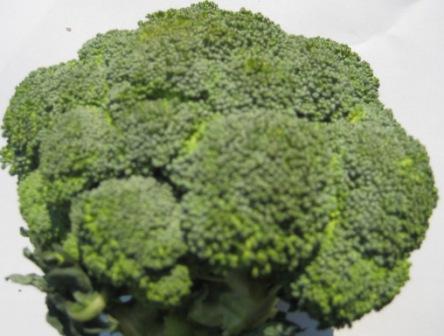  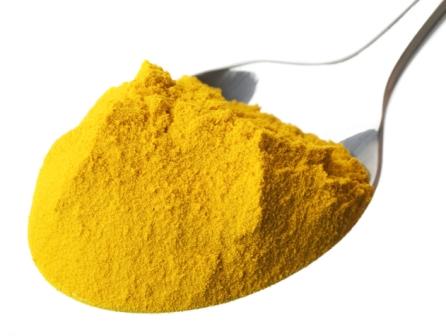 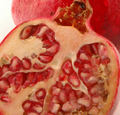 The
first
broad spectrum anti oxidant rich super food designed by a leading oncologist.
POmi-T
aims to boost your daily
antioxidant levels using only carefully selected natural wholes foods
which have been dried and concentrated for convenience ...read
more / order. The
first
broad spectrum anti oxidant rich super food designed by a leading oncologist.
POmi-T
aims to boost your daily
antioxidant levels using only carefully selected natural wholes foods
which have been dried and concentrated for convenience ...read
more / order.
|
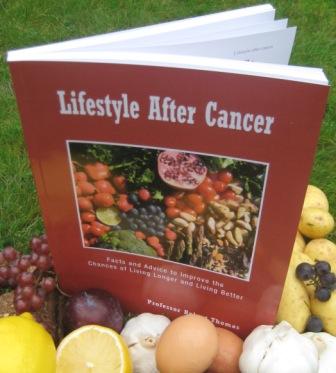 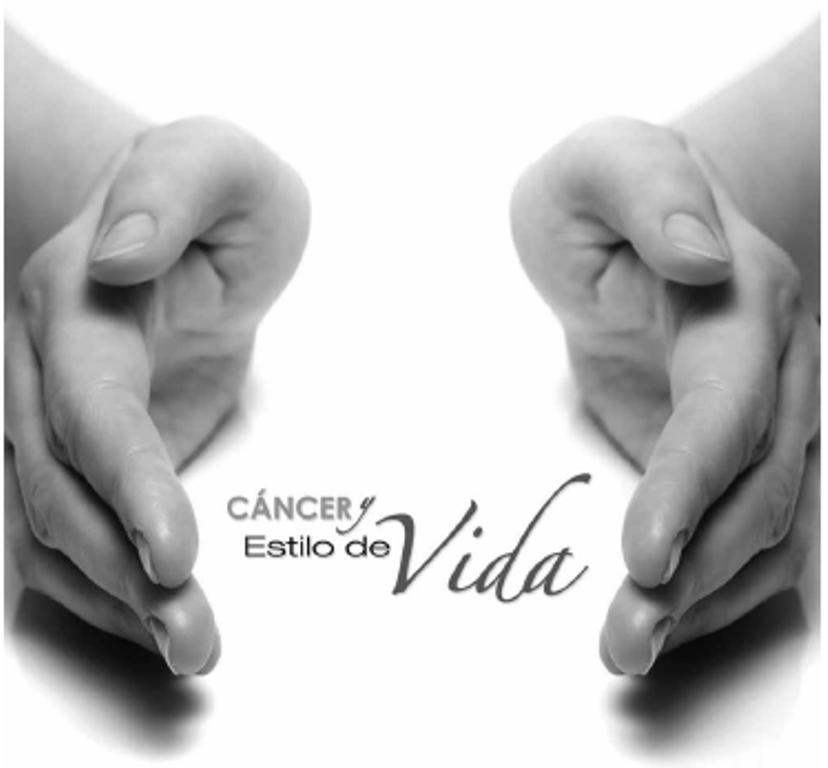 An inspiring new lifestyle advice
book, based only on the
facts, empowers readers with the knowledge to help their chances of living longer and stronger
..read
more / order
Después de una diagnosis del cáncer, es; “Qué puede nosotros hacer para
ayudarse?” La respuesta, que este libro trata, está “mucho”.
order
online
An inspiring new lifestyle advice
book, based only on the
facts, empowers readers with the knowledge to help their chances of living longer and stronger
..read
more / order
Después de una diagnosis del cáncer, es; “Qué puede nosotros hacer para
ayudarse?” La respuesta, que este libro trata, está “mucho”.
order
online |
 This
little book
identifies the situations where arguments
breakout and
gives simple tips to navigate around
them. Ideal reading for families after
cancer ..
order online This
little book
identifies the situations where arguments
breakout and
gives simple tips to navigate around
them. Ideal reading for families after
cancer ..
order online |
 This
21 minute DVD explains chemotherapy & radiotherapy. The only
preparatory film which was evaluated in a randomised study and
shown to reduce anxiety and improve well-being during treatments. Available in English, Italian, Urdu,
Bengali, Gujarati & Hindi ... read more / order online This
21 minute DVD explains chemotherapy & radiotherapy. The only
preparatory film which was evaluated in a randomised study and
shown to reduce anxiety and improve well-being during treatments. Available in English, Italian, Urdu,
Bengali, Gujarati & Hindi ... read more / order online |
 Cracked and sore lips are
common during chemotherapy and afterwards. There is evidence that
natural oil based creams are better than petroleum based creams. Nature-medical
lip balm contains only natural waxes and essential oils selected for their anti-inflammatory
and DNA stabilizing properties.. read
more..order Cracked and sore lips are
common during chemotherapy and afterwards. There is evidence that
natural oil based creams are better than petroleum based creams. Nature-medical
lip balm contains only natural waxes and essential oils selected for their anti-inflammatory
and DNA stabilizing properties.. read
more..order
|
|
Glossary
| About us |
Disclaimer |
Contact us
| How
to advertise on this site |
 What
is cancer; About
specific cancers;
Breast |
Prostate |
Bowel. Cancer
treatments; Chemotherapy
|
Radiotherapy |
Hormones | Biological
agents | Complementary.
Lifestyle
advice;
Exercise | Diet |
Smoking | Sunbathing
| Alcohol. Cope
with symptoms; Traveling
| Insurance | Making
a will | Support groups
| Tests
for cancer | Clinical trials. ...site
map
What
is cancer; About
specific cancers;
Breast |
Prostate |
Bowel. Cancer
treatments; Chemotherapy
|
Radiotherapy |
Hormones | Biological
agents | Complementary.
Lifestyle
advice;
Exercise | Diet |
Smoking | Sunbathing
| Alcohol. Cope
with symptoms; Traveling
| Insurance | Making
a will | Support groups
| Tests
for cancer | Clinical trials. ...site
map An
excess or a deficiency of vitamins and trace mineral can lead to an
increased risk of cancer, other illnesses and troublesome symptoms. A reliable way to ensure you have
the correct amounts is to measure
them. You will then be a to make able to make informed dietary decisions including and whether to take specific supplements
in order to restore your nutritional balance. ...read
more / order online
An
excess or a deficiency of vitamins and trace mineral can lead to an
increased risk of cancer, other illnesses and troublesome symptoms. A reliable way to ensure you have
the correct amounts is to measure
them. You will then be a to make able to make informed dietary decisions including and whether to take specific supplements
in order to restore your nutritional balance. ...read
more / order online
 An inspiring new lifestyle advice
book, based only on the
facts, empowers readers with the knowledge to help their chances of living longer and stronger
..read
more / order
Después de una diagnosis del cáncer, es; “Qué puede nosotros hacer para
ayudarse?” La respuesta, que este libro trata, está “mucho”.
order
online
An inspiring new lifestyle advice
book, based only on the
facts, empowers readers with the knowledge to help their chances of living longer and stronger
..read
more / order
Después de una diagnosis del cáncer, es; “Qué puede nosotros hacer para
ayudarse?” La respuesta, que este libro trata, está “mucho”.
order
online This
little book
identifies the situations where arguments
breakout and
gives simple tips to navigate around
them. Ideal reading for families after
cancer ..
order online
This
little book
identifies the situations where arguments
breakout and
gives simple tips to navigate around
them. Ideal reading for families after
cancer ..
order online This
21 minute DVD explains chemotherapy & radiotherapy. The only
preparatory film which was evaluated in a randomised study and
shown to reduce anxiety and improve well-being during treatments. Available in English, Italian, Urdu,
Bengali, Gujarati & Hindi ... read more / order online
This
21 minute DVD explains chemotherapy & radiotherapy. The only
preparatory film which was evaluated in a randomised study and
shown to reduce anxiety and improve well-being during treatments. Available in English, Italian, Urdu,
Bengali, Gujarati & Hindi ... read more / order online Cracked and sore lips are
common during chemotherapy and afterwards. There is evidence that
natural oil based creams are better than petroleum based creams. Nature-medical
lip balm contains only natural waxes and essential oils selected for their anti-inflammatory
and DNA stabilizing properties.. read
more..order
Cracked and sore lips are
common during chemotherapy and afterwards. There is evidence that
natural oil based creams are better than petroleum based creams. Nature-medical
lip balm contains only natural waxes and essential oils selected for their anti-inflammatory
and DNA stabilizing properties.. read
more..order